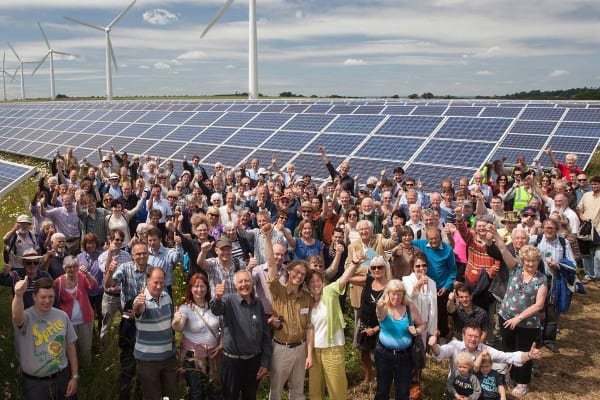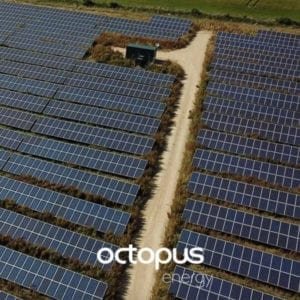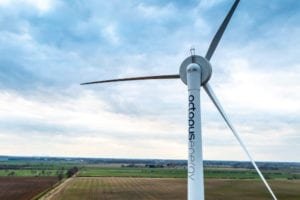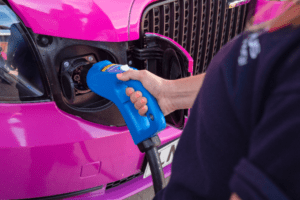Remarkably, according to research conducted by the CE Delft institute, half of EU citizens could be producing their own renewable electricity by 2050 – enough to meet 45% of energy demand.
The need to upend our outdated energy systems stretches beyond Europe, and countries across the globe have found unique ways to mobilise.
Marginalised communities
We know the impact of climate change is more severe in the global south, where many marginalised communities are threatened by extreme weather and ecological crises.
In rural Africa, 590 million people – almost half the population – currently live without access to electricity, limiting access to education and employment opportunities.
Often, those without electricity have to rely on costly and environmentally unfriendly options such as kerosene lamps and diesel-powered generators, which can cause serious health issues.
The positive news is that much of the global south has access to abundant renewable energy sources; in Africa, for example, many countries are embracing the switch to green energy. Kenya is a continental and international leader, with a massive 85% of its power coming from renewables.
Clean, affordable community energy is already actively improving the quality of life for many in disadvantaged communities around the world.
In Zimbabwe, for example, government and charity-run schemes to install solar panels in rural areas are a huge success story, helping communities stay connected and powering businesses to support families.
Schools have introduced IT lessons, families are able to read or work in the evenings and fridges can now be used to preserve food and medicine.
Community Energy Champions
One charity working to be part of this solution is Solpowered, an international project that is helping to end unequal energy distribution. The charity empowers low-income communities to take control of their energy generation and cut ties with financially and environmentally damaging diesel generators and unreliable grids.
The organisation was launched just a few years ago by Octopus Energy alumnus Melanie Rideout. It works alongside local Zimbabwe charity FACE, which is headed by Portipher Guta.
Solpowered and FACE are currently working on a programme in Zimbabwe, which is still severely impacted by energy poverty. Their first project installed a solar energy system at the critical maternity ward at Rusape General Hospital with the support of Engineers without Borders.
Prior to this project, unreliable power meant patients sometimes had to be operated on awake without anaesthesia.
Project manager Shuwisai recounts surgeons operating on patients using only candlelight or their phone torches. These dire conditions contributed to high local maternal and child mortality rates. Here, reliable renewable energy quite literally saved the lives of countless women and children.
Beyond energy
Once the need for reliable electricity was met, Solpowered and FACE were able to expand their project at Rusape General in lots of ways.
A healthy nutritional community garden was created to help tackle food poverty and provide a daily meal for hospital visitors. This will soon include a fishery project, which will provide water to fertilise the garden and provide a source of community income and protein to feed families.
An agroforestry project will provide trees for architecture, firewood and community revenue.
Solpowered’s projects embody the same ideals as community energy ventures everywhere: they are local initiatives centred on community empowerment. They’re run and set up by local organisations, and they train local young people to maintain the panels and contribute to the economic welfare of the community.
The charity is now looking at setting up micro-loans and classes on how to create sustainable energy projects, so people in the community can build healthy, sustainable lives and businesses for themselves. This holistic approach is a model for how we can create a more just world.
Imagining a better world
Across the world, communities are coming to terms with the effects of climate change. A sustainable, ethical, equitable world will require an energy system that puts power in the hands of the people.
Community generation enables us to reimagine energy in a way that works for the planet, as well as the most vulnerable in our society. This green energy revolution is already underway – and thanks to community energy, people at the hearts of their communities are destined to be its vanguards.
 Play Video about This Rock Might Just Save The World
Play Video about This Rock Might Just Save The World Play Video about Play 2 hours of rock
Play Video about Play 2 hours of rock Play Video about Play 2 hours of brook
Play Video about Play 2 hours of brook Play Video about Play 2 hours of sheep
Play Video about Play 2 hours of sheep















































